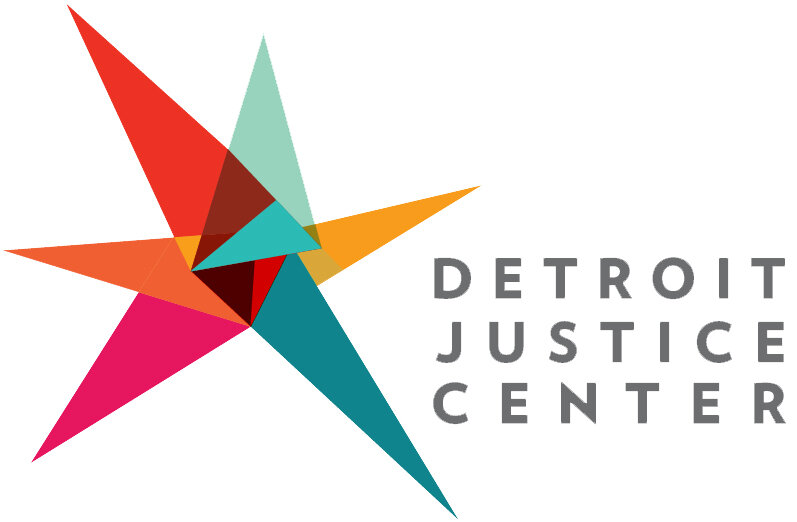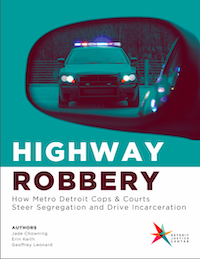70% of working Detroiters travel outside of the city for work & 7% of Detroiters take public transportation regularly. These conditions are part of a recipe for wealth extraction and incarceration. Metro Detroit police and courts are engaging in what amounts to highway robbery of marginalized drivers, and the Detroit Justice Center has released a report detailing the historical and contemporary ways in which this drives segregation and incarceration.
Since September 2019, attorneys and researchers at the Detroit Justice Center have been seeking an answer to the question “how do we help our clients beyond assisting them in traffic court?”. For some people, receiving a speeding ticket or a ticket for a faulty taillight is a minor inconvenience or annoyance. But what happens to those who can’t just get something fixed or pay the speeding ticket? For many low-income Metro Detroiters, this is an all-too-common reality: a single unaffordable ticket becomes an ever-growing web of unpayable fines, suspended licenses, warrants, and the constant threat of incarceration—a potentially life-altering ticket to jail.
In the nearly two years since we’ve opened our doors, we’ve represented a multitude of indigent clients—mothers, fathers, young adults, seniors, formerly incarcerated individuals—people from all walks of life who are struggling to navigate these legal roadblocks, which they face solely due to their inability to pay.
This system of modern-day segregation will continue to trap marginalized drivers in debt, fund suburban communities off of the region’s poorest residents, and send people to jail for victimless traffic offenses. It is our hope that by examining the historical and legal context that created this vicious cycle, bringing light to experiences of people who have been directly impacted, and putting forward recommendations for change, we can empower our community members, lawmakers, and fellow advocates to construct a clear road ahead—a reality free from the detours and dead ends of driving while poor.

